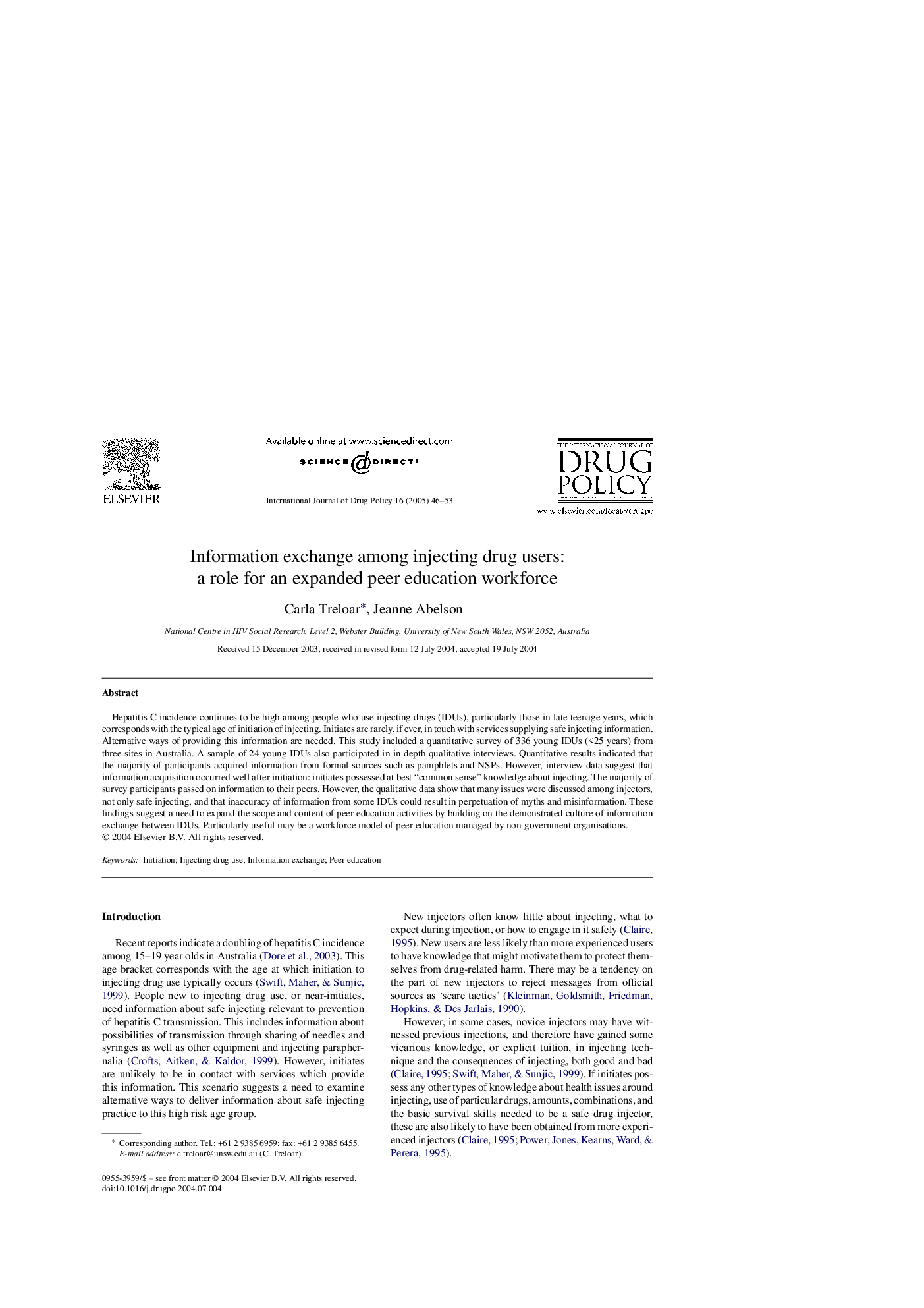| Article ID | Journal | Published Year | Pages | File Type |
|---|---|---|---|---|
| 9737208 | International Journal of Drug Policy | 2005 | 8 Pages |
Abstract
Hepatitis C incidence continues to be high among people who use injecting drugs (IDUs), particularly those in late teenage years, which corresponds with the typical age of initiation of injecting. Initiates are rarely, if ever, in touch with services supplying safe injecting information. Alternative ways of providing this information are needed. This study included a quantitative survey of 336 young IDUs (<25 years) from three sites in Australia. A sample of 24 young IDUs also participated in in-depth qualitative interviews. Quantitative results indicated that the majority of participants acquired information from formal sources such as pamphlets and NSPs. However, interview data suggest that information acquisition occurred well after initiation: initiates possessed at best “common sense” knowledge about injecting. The majority of survey participants passed on information to their peers. However, the qualitative data show that many issues were discussed among injectors, not only safe injecting, and that inaccuracy of information from some IDUs could result in perpetuation of myths and misinformation. These findings suggest a need to expand the scope and content of peer education activities by building on the demonstrated culture of information exchange between IDUs. Particularly useful may be a workforce model of peer education managed by non-government organisations.
Related Topics
Health Sciences
Medicine and Dentistry
Psychiatry and Mental Health
Authors
Carla Treloar, Jeanne Abelson,
